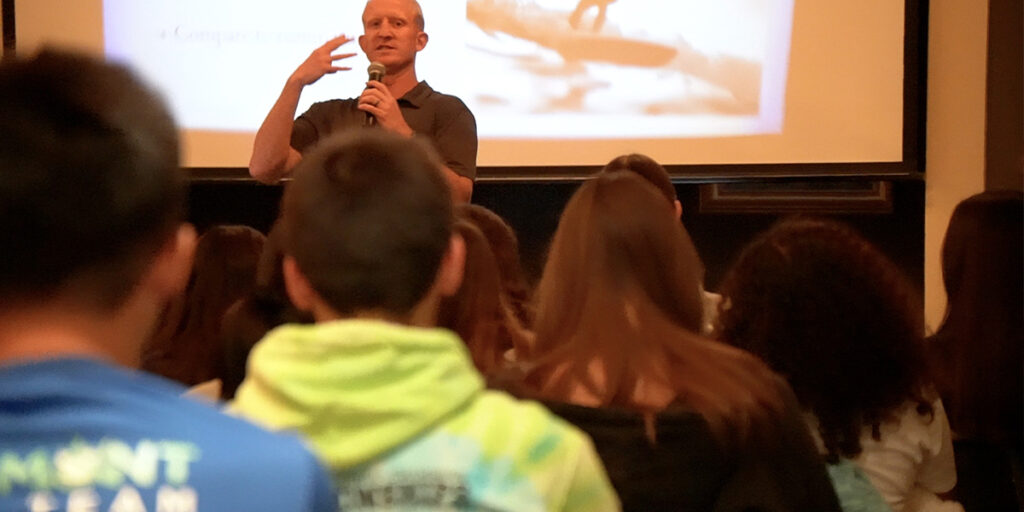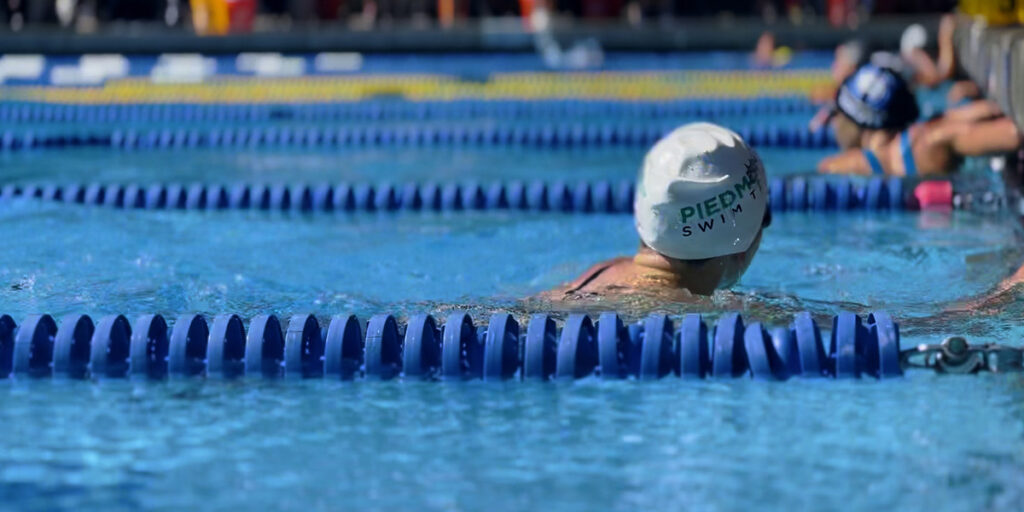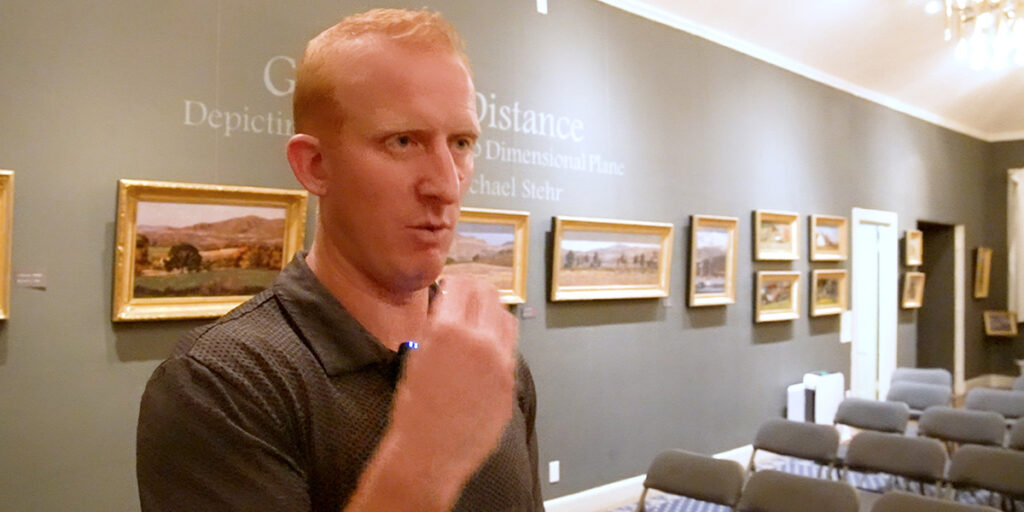A former Cal and professional soccer player spoke to the Piedmont Swim Team about how to have a positive mindset and overcome negative self talk.
[SPONSORED VIDEO]
Insights, stories and interviews about homeownership and living in the East Bay
From a Piedmont native, Emmy award winning television journalist turned Broker Associate at The Grubb Co., UCLA graduate, wife and mother of 3.
LC: NOAH MERL WAS A SOCCER PLAYER FOR CAL AND PLAYED PROFESSIONALLY FOR THE SEATTLE SOUNDERS, SO HE KNOWS FIRSTHAND THE PRESSURES THAT ATHLETES FACE AND HOW IT AFFECTS THEM PHYSICALLY AND MENTALLY.
NOW, NOAH MERL IS A CLINICAL THERAPIST AND SPORTS PSYCHOLOGY CONSULTANT. THANK YOU FOR SPEAKING TO OUR PIEDMONT SWIM TEAM TONIGHT.
NM: Thanks for having me.
LC: IT SEEMS LIKE ATHLETES HAVE HISTORICALLY DOWNPLAYED MENTAL HEALTH ISSUES AND THE MENTAL SIDE OF PERFORMANCE. WHY DO YOU THINK THAT IS?

NM: There’s been a stigma against mental health issues for as long as people have been around. I think, for the most part, that stigma is breaking down elsewhere. But in the sports world, where it’s kind of suck it up and be tough and push through, that still exists probably more than in other places.
It’s changing. It’s coming around. There’s more and more attention to it and services and there are more people like Michael Phelps who talk about it and are open about their struggles. But it’s just sort of slower in the sports world.
LC: WHAT WOULD YOU SAY ARE SOME OF THE MAIN OBSTACLES THAT ATHLETES FACE?
NM: Negative self-talk is one of the main things. Our brains kind of inherently go to negativity and threats and a critical voice about what we did wrong and what we could have done better. And that voice tends to just work against us in terms of both sort of how we see ourselves and what our experience is moving through it, but also just negatively affects our performance because it distracts us from what we can control and just kind of pushes us down and makes us feel worse, which also negatively impacts our performance.
LC: IT SEEMS LIKE IT WOULD BE HARD TO CONTROL BECAUSE YOU’RE IN SUCH A COMPETITIVE ENVIRONMENT. SO, WHAT ARE SOME TECHNIQUES TO OVERCOME THIS?

NM: One of the main things is compartmentalizing. When it’s time to perform, it’s time to perform, and it’s important to leave all of that stuff to the side and try to put yourself in the moment and focus on what you can control.
LC: IT’S HARD, I THINK, AS AN ATHLETE TO STOP COMPARING YOURSELF TO OTHERS AND I THINK THAT CAN LEAD TO THE NEGATIVE SPIRAL, THE NEGATIVE SELF-TALK. I’M NOT BETTER THAN THE PERSON NEXT TO ME. SO, HOW DO YOU CONTROL THAT OR HOW DO YOU STOP THAT? HOW DO YOU STOP COMPARING YOURSELF TO OTHERS?
NM: I think it’s probably not fully possible never to do it, but I think there’s an effort towards doing it as little as possible and trying to catch it when you recognize your mind is going there and trying to put it back to what you can control it and what’s going to be helpful ultimately and useful both in your performance and experience as you’re going through it.

LC: WHAT ARE YOU HOPING THAT THEY WILL TAKE AWAY FROM YOUR TALK TONIGHT?
NM: Just that idea of putting my attention where I want it, when it’s time to go and putting all of my mental and physical energy into what I can control.
LC: NOAH MERL THANK YOU SO MUCH FOR TALKING TO US.
NM: Thanks for having me.
CONTACT ME
Who should I interview next for Local with Lisa? If you have a suggestion I’d like to hear it! Or if you’d like to talk about real estate and want to know your home’s current market value, I’m happy to provide you a complimentary assessment. Get in touch!
For more Local with Lisa, click here.
